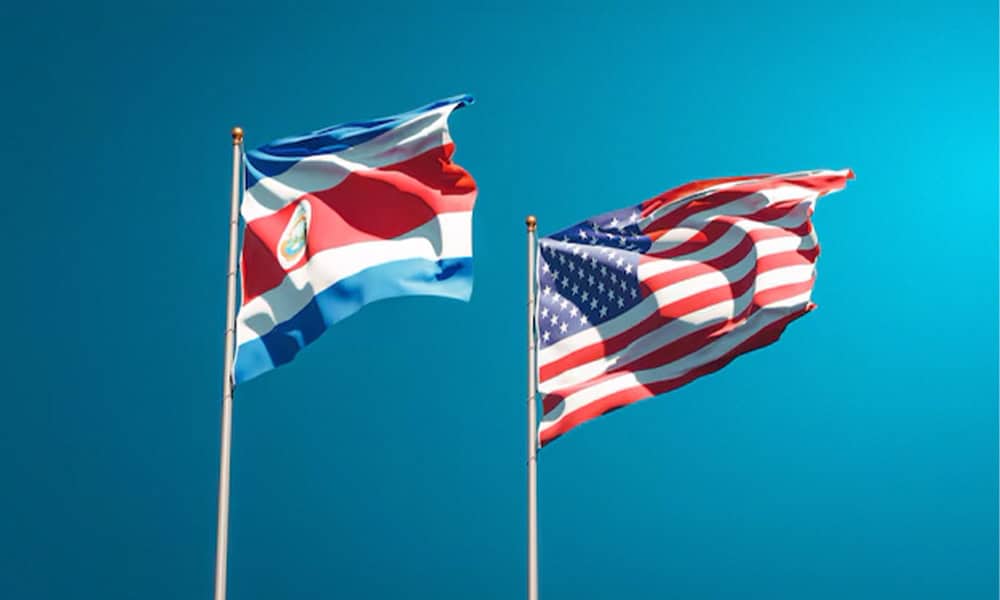Latin America is navigating a minefield of economic and military threats following Donald Trump’s return to the White House. Some leaders have pushed back, others have yielded, and a few have opted to look the other way. No country in “our hemisphere,” as the White House calls the Americas, has escaped what many see as the revival of U.S. interventionism.
“Every Latin American country faces an inherent asymmetry with the United States. That’s the baseline,” said Alejandro Frenkel, professor of International Relations at the University of San Martín in Argentina. Below is a brief look at the pressures and the responses.
Whatever Trump Wants
Argentina’s president, Javier Milei, “does whatever Trump does and whatever Trump wants,” said analyst Michael Shifter of the Inter-American Dialogue in Washington. In urgent need of strong support to help revive Argentina’s battered economy, Milei has positioned himself as a fervent ally of Trump and offered U.S. manufacturers preferential access to his country’s market.
The Republican lifted restrictions on Argentine beef imports as part of a trade deal whose full details are still unknown, and provided a multibillion-dollar financial lifeline. Another loyal Trump ally in the region is El Salvador’s president, Nayib Bukele, known for crushing gang violence and for turning his country into the first willing recipient of migrants expelled during Trump’s second administration.
Human rights groups accuse Bukele of torture and other abuses, but in exchange for receiving migrants, 200,000 Salvadorans obtained a temporary extension to remain in the United States, preserving a vital flow of remittances.
Ecuador’s president, Daniel Noboa, also agreed to accept deported migrants and sided with Washington during the military buildup in the Caribbean and U.S. strikes against suspected drug traffickers. In return, Noboa secured expanded U.S. cooperation against criminal gangs.
Rude and Ignorant
Colombia’s leftist president, Gustavo Petro, has openly confronted Trump. He has called him “rude and ignorant” and compared him to Adolf Hitler. Petro denounced the Trump administration’s treatment of migrants and described as “extrajudicial executions” the more than 80 deaths of suspected traffickers in U.S. operations in the Caribbean and Pacific.
Bogotá drifted away from Washington and moved closer to Beijing through China’s Belt and Road initiatives. In response, Trump’s government imposed sanctions on Petro, accusing him of drug trafficking. The White House removed Colombia from a list of allies in the fight against narcotrafficking, though the country avoided harsher punishment—likely because Washington expects Colombia’s right-wing forces to retake power in the 2026 presidential elections.
Brazil’s leftist president, Luiz Inácio Lula da Silva, has also clashed with Trump. But according to Oliver Stuenkel, a professor of international relations at the Getulio Vargas Foundation in São Paulo, Brazil’s response has been “more pragmatic and firm.” Lula condemned as “foreign interference” Trump’s punitive tariffs on Brazilian imports, imposed in retaliation for the coup trial targeting Trump ally Jair Bolsonaro. Had this happened 25 years ago, when the U.S. was Brazil’s main trading partner, “Brazil would have had to make significant concessions,” Stuenkel said.
But now “Brazil exports more to China than to the United States and Europe combined.”
Silent Diplomacy
Mexico’s president, Claudia Sheinbaum, has fewer options. More than 80 percent of Mexico’s exports go to the United States. Sheinbaum responded to Trump’s rhetoric on Mexican drug cartels and migration through behind-closed-doors agreements—what analysts call “silent diplomacy.”
Mexico avoided the worst of Trump’s tariff threats by increasing intelligence sharing, drug seizures, and arrests of cartel leaders. But the country held firm on its stance against “subordination” when Trump floated the idea of launching attacks on traffickers inside Mexico.
Panama’s president, José Raúl Mulino, is also walking a tightrope. At Washington’s request, he pulled Panama out of China’s Belt and Road Initiative. Mulino then allowed the sale of ports owned by a Hong Kong–based conglomerate in the Panama Canal, after Trump threatened to “take back control” of the strategic waterway.
Not Provoking the United States
Venezuela stands in a category of its own, fearing that the large U.S. naval deployment in the Caribbean may be aimed at toppling President Nicolás Maduro. The embattled leader, widely accused of electoral fraud in the last two presidential votes, has few allies or economic backers.
Caracas agreed to free U.S. prisoners, while Washington allowed Chevron to continue operating in the country, which has the world’s largest proven oil reserves. Venezuela is bracing for what it sees as a looming U.S. threat while “making every effort not to provoke the United States,” said Guillaume Long, senior fellow at the Washington-based Center for Economic and Policy Research and former foreign minister of Ecuador.






